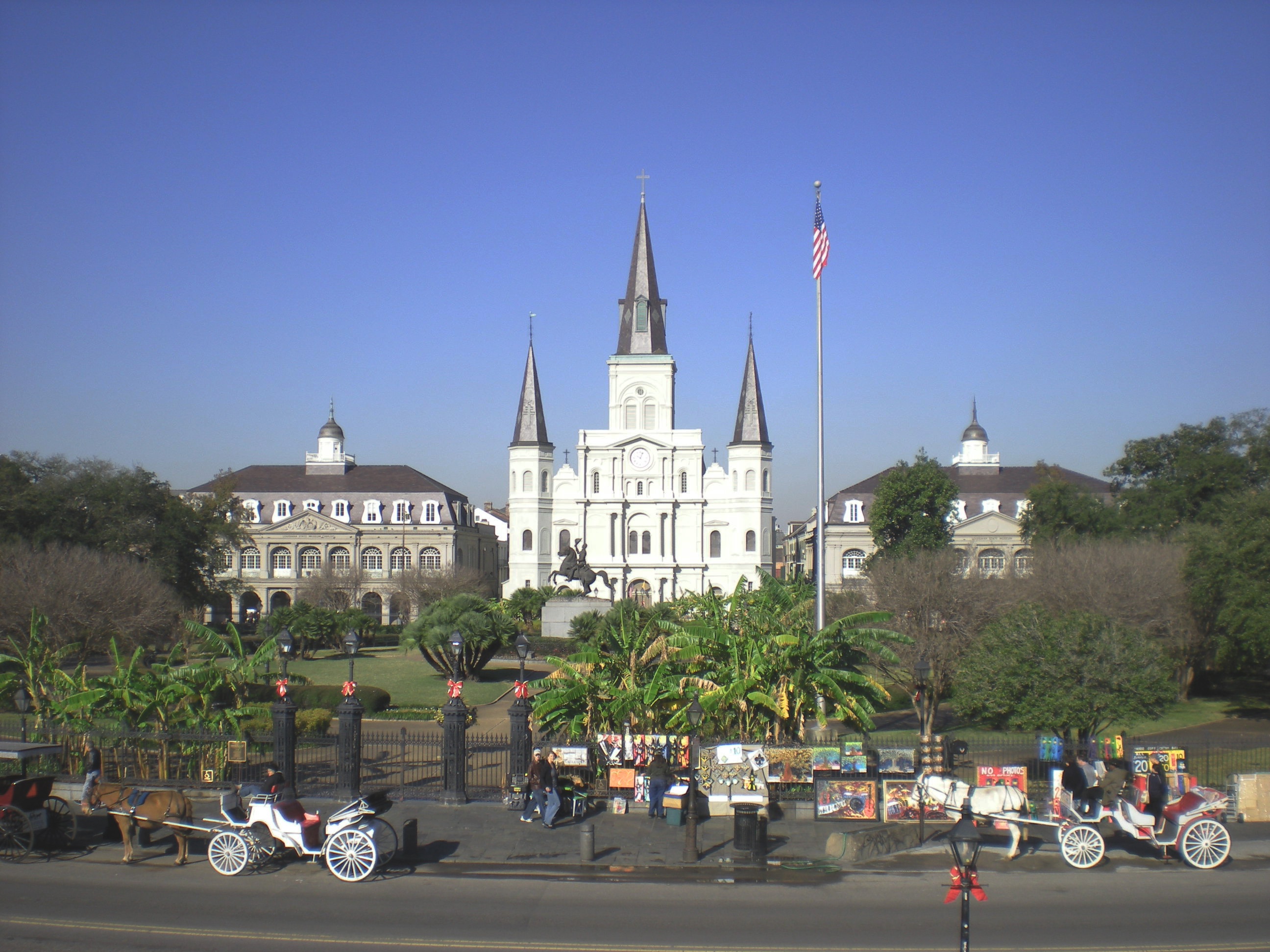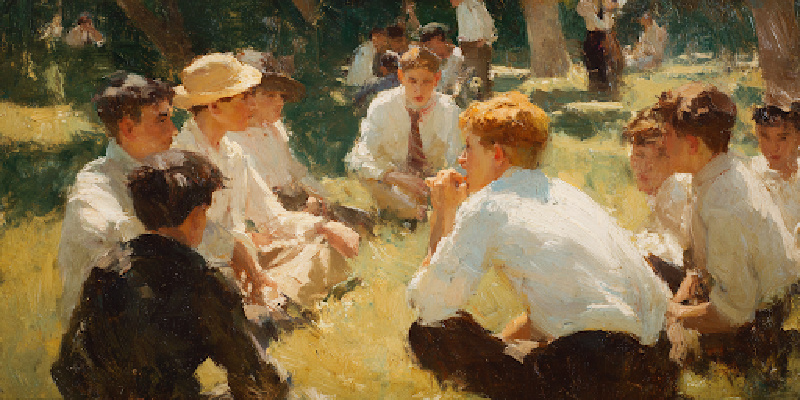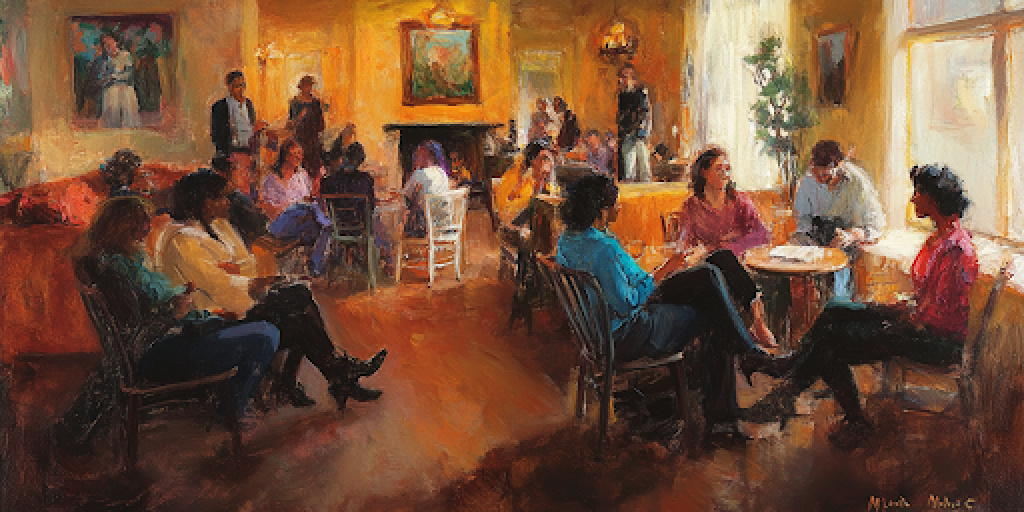Douglas Laycock is the Robert E. Scott Distinguished Professor at the University of Virginia School of Law, and a leading scholar in the law of religious liberty. He has served as lead counsel in six cases argued before the U.S. Supreme Court.
I had the opportunity to speak with Laycock about the Supreme Court’s recent ruling on LGBT+ employment rights, and its implications for religious liberty. The conversation has been edited for clarity and brevity.
Christopher Cunningham: The Supreme Court’s recent Title VII ruling was about employment protections for gay and transgender individuals. But many people are talking about religious freedom. Why? How does this case have anything to do with churches or religion?
Douglas Laycock: All the cases decided involved commercial employers, none of whom were making religious liberty arguments in the Supreme Court. So the Court had no occasion to decide anything about religious liberty, and it didn’t.
But of course, many of the employers who resist hiring from the LGBT+ community are religious institutions acting for religious reasons. A few are small commercial employers acting for religious reasons. Most of these religiously motivated employers are subject to Title VII, the federal employment-discrimination law that the case did interpret. You are seeing the alarmist reaction of advocacy groups speaking on behalf of these religiously motivated employers.
These employers will offer religious liberty defenses to Title VII claims by LGBT+ employees. The employers have several legal theories available to them, and the Court will sooner or later have to decide all the resulting issues. The alarmism is overdone; protecting religious liberty for these employers does not require permitting all other employers to also discriminate against the LGBT+ community.
CC: You described many of the religious liberty concerns as “alarmist.” In what ways do you feel that concerns are overwrought? And where do you see legitimate religious liberty concerns arising in response to this case?
DL: Much of the early reaction is alarmist because it’s premature. None of the religious liberty issues have been decided in the Supreme Court yet, except for Masterpiece Cakeshop two years ago, which protected the wedding baker from a public accommodations law.
The alarmist reaction is coming from people who seem to believe that the only way to protect religious minorities (they may be large minorities, but they are minorities on this issue) is to deny legal protection to sexual minorities. This is the mirror image of people on the gay-rights side who think the only way to protect the LGBT+ community is to deny all protections for religious liberty.
The Court is capable of protecting both sides. Whether it will do so remains to be seen. But I am cautiously optimistic.
The Court has several tools to work with. There is the Free Exercise Clause of the First Amendment, which is what they relied on in Masterpiece Cakeshop. It is at issue in Fulton v. City of Philadelphia, which will be decided next year.
Whatever happens with free exercise, there is also the Religious Freedom Restoration Act (RFRA). It applies to all federal law, including Title VII. And depending on what happens in Fulton, it may be a simpler and more straightforward source of protection than the Free Exercise Clause.
And then Title VII itself has an exception for religious employers hiring on the basis of religion.
There are at least three different ways for the Court to protect religious employers, all remaining to be decided.
CC: What are the protections you mentioned within Title VII itself that might limit Monday’s ruling?
DL: Title VII has an exception that allows religious institutions to hire members of a particular religion. This has been sensibly interpreted to permit hiring on the basis of religion more generally. If an LDS charity hires other Christians, or other conservative Christians, it does not forfeit its right to refuse to hire outspoken atheists.
There is an issue in the lower courts about whether this just means the employee’s self-professed religious identity, or whether it also means adherence to basic tenets of the faith. There is a Supreme Court case from the 80s where an employee was fired because he lost his temple recommend (Bishop v. Amos). The temple-recommend practice, as I understand it, gives the Church some control over who identifies as LDS.
But suppose I tell my employer that I’m Catholic. Does the employer just have to take my word for it? Or can it say that I’m in a same-sex marriage and I’m moonlighting in an abortion clinic, so I’m obviously not Catholic in any meaningful sense? In other words, can a religious institution fire employees who publicly flout church teachings? The Court will have to resolve that issue in the religious institutions’ favor for the Title VII exception to provide meaningful protection in the gay-rights context.
The exception says that this section of the statute shall not apply to hiring decisions within the exception. So it shouldn’t matter that the employer is discriminating on the basis of some other protected category. If the decision is based on religion, it should be protected.
If the Court gets that right, then the protection from the Title VII exception is absolute. You don’t have to argue about whether there’s a compelling government interest in nondiscrimination within religious institutions.
The Title VII exception is broader than the ministerial exception in one way, because it applies to all employees at the organization, not just those doing religious functions or in leadership roles. It is narrower in another way; it protects only those employment decisions [that are] based on religion. The ministerial exception, where it applies, protects any employment decision on any basis, because we don’t want courts second-guessing decisions about the employment of the people who count as ministers.
The Title VII exception probably does not protect religiously motivated for-profit employers. It is a protection for religious organizations only, and only when their decision is based on religion.
CC: The Supreme Court has recently heard a pair of cases about teachers being fired by Catholic Schools, where the Catholic Schools are claiming the “ministerial exception” you mentioned. Justice Gorsuch also mentions a ministerial exception near the end of his opinion. What is a ministerial exception, how does it relate to this case, and how could it help resolve some of the questions this case opens?
DL: The ministerial exception is a constitutional rule that protects religious employers. Because it is constitutional, it protects against state law as well as federal law. It is very strong where it applies, but its scope of application is narrow.
The rule is that a person in a position of religious leadership cannot sue to get his job back or to get back pay for having lost that job. “Ministerial” is a misnomer; the rule is not confined to people who are ministers in ordinary language. It obviously also applies to priests, rabbis, and imams.
And it applies to other key personnel who speak for a religious organization or teach the faith. A few years ago, the Court unanimously applied the ministerial exception to a fourth-grade teacher who taught a religion class every day, led the children in prayer, and took her turn leading the school’s chapel service. The school could fire her for any reason or no reason, including reasons that would otherwise be illegal, because she was responsible for transmitting the faith to the next generation. That case was called Hosanna-Tabor Evangelical Lutheran Church and School v. Equal Employment Opportunity Commission.
The issue in the cases you ask about is how many teachers the ministerial exception covers. The plaintiffs were also elementary school teachers who taught the secular curriculum, taught a religion class, and led the children in prayer.
I think the schools are likely to win those cases. But either way, the ministerial exception will protect religious organizations only against suits from a small part of their workforce. It provides absolute protection; even if the church fires you because it doesn’t like your race. That is unusually strong protection, and it can’t be generalized to the whole workforce. It applies to clergy, to people like organists who play an essential role in worship services, to spokespersons, and I hope, to religion teachers.
But it will never apply to middle school or high school teachers who teach only secular subjects, or to clerical staff or custodians. It is unlikely to ever apply to social workers or the staff at homeless shelters or soup kitchens or other religious charities.
The other sources of protection that I mentioned are more complicated, but they are of much broader scope; they potentially apply to the whole workforce.
CC: One of those other protections you mentioned is the RFRA. In his opinion, Justice Gorsuch mentioned this law, and described it as a “super-statute.” What does that mean and how might that provide comfort to those with remaining religious liberty concerns?
DL: “Super-statute” is not a legal category. It’s an expression, but a pretty meaningful one. RFRA expressly applies to “all federal law, and the implementation of that law.” So every federal statute, including Title VII, is subject to RFRA unless Congress expressly enacts an exception. That hasn’t happened and isn’t likely to happen.
RFRA says that federal law cannot be applied in a way that substantially burdens a person’s exercise of religion unless that burden is the least restrictive means to serve a compelling government interest. A religious institution or a religiously-motivated employer is a person. If that institution has religious reasons to refuse to hire an LGBT+ person in a certain position, requiring it to do so substantially burdens its religious exercise.
If the person in that job is a role model, or represents the church to the public, the religious reason and the burden on religious exercise is pretty clear—although plaintiffs will dispute that. The computer teacher doesn’t have to be allowed to publicly flout church teaching. It is far less apparent that the janitor can’t be gay, or that a retail sales clerk can’t be gay. Some claims may look like simple bigotry instead of sincere exercises of religion.
Once the religious employer shows a burden on religious exercise, the plaintiff has to prove compelling government interest and least restrictive means. That will probably be the principal litigation fight. The gay-rights movement argues that there is a compelling government interest in stamping out every single instance of discrimination, even inside the church. I don’t think that makes much sense, and I don’t think that there are five votes for that position on the Supreme Court. But we will see when they decide.
There may be compelling interests in some cases—quite possibly in commercial employment, or in commercial employment by large businesses or in local areas where many employers want to discriminate. But the Court is much less likely to find a compelling interest when government regulation and plaintiffs reach inside religious organizations.
CC: You mentioned Fulton v. City of Philadelphia and that it might affect the interpretation of the Free Exercise Clause. What is the case about and what are its implications?
DL: The issue in Fulton is whether religious child-welfare agencies have to place children for foster care with same-sex couples. And at the invitation of four justices, the litigants have briefed (written a legal argument) whether to expand free-exercise protection back to its historic scope.
Employment Division v. Smith is a Scalia opinion from 1990. It says that the Free Exercise Clause simply doesn’t apply to laws that are neutral and generally applicable. Even if the law bans a worship service, there is no free exercise issue.
The Court did not have any clear idea of what it meant by neutral and generally applicable law, and thirty years later, it still hasn’t explained. Government lawyers claim that nearly all laws are neutral and generally applicable. If that’s right, then the Free Exercise Clause prohibits outright discrimination against religion, and nothing more.
Religious liberty lawyers say that if a law has exceptions or gaps in coverage that permit secular activities that cause the same harms as those the government attributes to the burdened religious exercise, then the law is not generally applicable. On that reading, many laws are not generally applicable. But as that complicated sentence may illustrate, this reading makes every free exercise claim enormously complicated. The litigants have to fight at the threshold over whether the law is generally applicable, before they ever get to the burden on religion and whether that burden is justified.
The litigants are fighting in Fulton over whether the law is neutral and generally applicable, and that fight is complicated and hard to summarize. But the Court in Fulton also granted review on whether Employment Division v. Smith should be reconsidered. The issue is now being briefed for the first time; the Court in Smith just did it, without warning and without briefing or argument.
CC: Justices Kagan and Breyer have been very open to expanding religious freedoms in the recent past (Masterpiece, Trinity Lutheran). Would you be willing to speculate on how receptive the court might be to reconsidering the limits to religious liberty that Employment Division v. Smith put in place?
DL: Predictions are always dangerous, but I am optimistic that the Court will overrule Smith. Smith is inconsistent with the constitutional text, and Monday’s opinion was all about the importance of legal texts. And Smith is inconsistent with how the founding generation understood religious liberty. All or nearly all the colonies exempted Quakers from serving in the military and swearing oaths. Rhode Island exempted Jews from the Christian marriage laws. All the colonies with taxes to support the established church exempted religious dissenters from paying those taxes. In colonies that had deliberately oppressed or excluded their religious minorities, once they changed their mind and tried to protect religious liberty, they soon discovered that religious liberty was meaningless without exemptions for important religious practices.
Judicial personnel also matters, as your question suggests. Four of the five Justices who decided Smith were conservatives who defined judicial conservatism in terms of deference to the other branches. Today’s judicial conservatives are much more inclined to judicial activism. The plaintiffs in Smith were Native Americans using a traditional and naturally occurring hallucinogenic drug in a worship service; I think the Court did not imagine that large conservative churches would someday be frequent victims of its decision in Smith. Justices Breyer and Kagan have both suggested that they think Smith was wrongly decided, although those writings are many years ago now. And you should not assume that Justices Ginsburg and Sotomayor are votes for Smith.
Religious liberty claims have actually won in the Supreme Court far more often than they have lost in the thirty years since Smith. The cases have turned on Smith‘s multiple exceptions, on statutes like RFRA, and on other constitutional provisions like the Free Speech Clause. And several of these decisions have been unanimous. The liberal Justices are not hostile to religious liberty. They think that other interests they care about, including gay rights, override religious liberty more often than I would override religious liberty. But many religious liberty cases do not involve gay rights or other liberal causes. Any Justice might vote to overrule Smith, to provide better religious protection for cases where they think that is appropriate, knowing that they can vote to find a compelling government interest where they think that is appropriate.
On the other hand, they could find that the law in Fulton is not neutral, or not generally applicable, and that they can postpone any reconsideration of Smith. Or they could find a compelling government interest so that the church loses whether or not Smith is overruled. I think that they are more likely to not reach the issue than to reach it and reaffirm Smith. Any outcome is possible here, but I am optimistic about an overruling of Smith.
CC: Besides Fulton, what other religious freedom cases or issues are on the horizon that those who are interested or concerned should keep an eye on?
DL: They took an unusual number of religion cases this year. There are the two ministerial exception cases you asked about, which will be decided this year. Fulton will not be decided until next year.
Then there is Little Sisters of the Poor v. Pennsylvania and Trump v. Pennsylvania, about the Trump contraception regulations. Recall that the Obama Administration exempted religious organizations from providing free contraception on condition that their secular insurers provide it instead. Most religious organizations accepted that solution; some did not; and the Supreme Court kicked the cases back to the lower courts and to hoped-for settlement negotiations.
Trump gave the remaining objectors everything they asked for. They don’t have to provide free contraception, their insurers don’t have to provide it either, and there is no mechanism to help female employees get free contraception. They did this by issuing new regulations, and the court of appeals held those regulations invalid.
This case may or may not be decided on religious liberty grounds. The principal religious liberty issue is this: Can executive-branch agencies issue regulations to implement, or comply with, the Religious Freedom Restoration Act? And if so, can those regulations go further to protect religious liberty than the courts might have required?
The court of appeals said no to those questions. And that would mean that no agency should ever make any effort to comply with RFRA. It will just get sued by whomever it disappoints. So it may as well wait to get sued by religious objectors, and let the courts sort it out. So this is an important issue going forward. I am optimistic that the Court will uphold these regulations, or if it strikes them down, do so in a way that doesn’t harm RFRA. The Trump people took short cuts with the Administrative Procedure Act, as they often do, and the case may be decided on that ground.
Then there is Espinoza v. Montana, where the issue is this: If a state has a program to help fund private schools, can it exclude or discriminate against religious private schools? The Court reserved that question two years ago, when it said that a state funding program for playgrounds could not discriminate against a church daycare center (Trinity Lutheran v. Comer). I think the majority is going to say no, the state cannot discriminate against religious schools. But that is a pretty uncertain prediction.
Fully briefed but put over to next year is Tanzin v. Tanvir, about whether the victims of an RFRA violation can recover money damages from the federal official who violated RFRA. This is tangled up with the Court’s terrible rules on qualified immunity and suits against governments and government officials. RFRA says “appropriate relief,” and the model Congress appeared to have in mind was a federal civil rights statute where damages are an available remedy.
Tanzin is less important than the other cases, because the most important issue in RFRA cases is usually fixing the government policy going forward. There is no dispute that the courts can order that. But the FBI allegedly did serious damages to the Muslim plaintiffs in Tanzin, and when they got caught, said OK, we won’t do it again. So damages are the only possible remedy here.
Finally, there is a very important cert petition, just filed, in Small v. Memphis Light Gas & Water, asking the Court to consider overruling TWA v. Hardison. Title VII prohibits employment discrimination on the basis of religion, and it defines religion to include religious practice. It says employers must reasonably accommodate their employees’ religious practices unless doing so would impose undue hardship on the employer. The intention was to protect employees with religious holidays, Sabbath observances, modest dress requirements, and other religious practices that might complicate scheduling or upset a conformity-minded employer.
Hardison, in 1977, defined “undue hardship” to mean “more than de minimis cost.” That took all the teeth out of the statute. TWA was still a large and successful company back then, but the Court said it would be an undue hardship for TWA to accommodate Hardison’s Sabbath observance. Many employers have ignored the accommodation requirement for decades now.
In 2019, when four Justices invited litigants to ask the Court to overrule Smith, they also invited litigants to ask the Court to overrule Hardison. They now have the request. But they have not agreed to hear the case; this is still at the petition stage.
This set of religious liberty protections gives the Court the tools to create something like the Utah compromise on a national scale—to protect the LGBT+ community from discrimination and also protect religious liberty. Neither side really wants that, but that’s the solution that protects the most liberty for the most Americans. And I think the votes may be there to actually do it.
CC: Thank you so much for sharing your time and expertise!
DL: You are very welcome.






Subscribe To Our Weekly Newsletter
Stay up to date on the intersection of faith in the public square.
You have Successfully Subscribed!